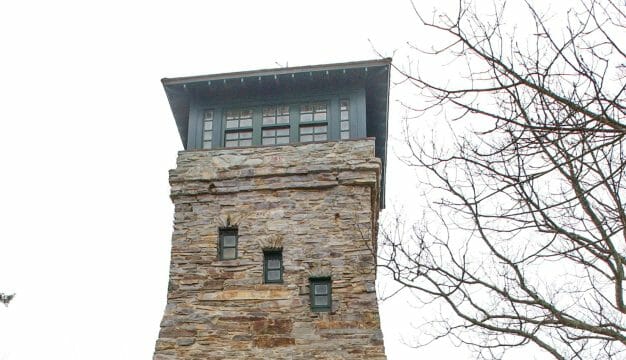Carter Manasco
Carter Manasco (1902-1992) was an attorney and conservative Democrat who represented Alabama's Seventh Congressional District for four terms, from 1941 to 1949. He was active in efforts to reform federal agencies following World War II and in the creation of the modern foreign policy and national security establishment. A native of Walker County, Manasco relocated to the Washington, D.C., area following his election to the House. After he lost his reelection campaign in 1948, he remained there until his death, working for many years as a lobbyist for the coal mining industry.
Manasco was born in Townley, Walker County, on January 3, 1902, to John Claud and Dora Lutitia Manasco; he had two sisters. Manasco grew up on a farm and attended local public schools; he graduated from Howard College (present-day Samford University) in Birmingham, Jefferson County. He first became involved in politics during the heated 1928 presidential election, working unsuccessfully on behalf of Democratic candidate Al Smith, while demonizing Herbert Hoover and Republicans. He earned a law degree from the University of Alabama, graduating in 1929, and then practiced law in Jasper. He was elected to the Alabama House of Representatives and served from 1930 to 1934.
Manasco first went to Washington, D.C., in May 1933 to work for the Internal Revenue Service. He soon became secretary to U.S. representative and eventual Speaker of the House William B. Bankhead, working for him from 1933 until Bankhead's death in September 1940. Marion County native Lorenzo Zadoc Weatherford was elected to fill the seat and served from November 1940 until January 3, 1941, when the 76th Congress ended. Bankhead nephew Walter William Bankhead won the seat, taking over on January 3, 1941, but he resigned from Congress after serving for one month. Manasco won the subsequent special election and was seated on June 24, 1941, and was re-elected for three additional terms. He married Mae Emma Guyton in 1942, and together they had two children.
In his first year, Manasco voted for bills authorizing the president to requisition property for national defense, provide war supplies to U.S. allies (Lend Lease and later appropriations), extend the terms of enlistment for the National Guard and the Army, and appropriate new funding for national defense (and later appropriations). Later, like almost all of the Alabama delegation, Manasco voted against several bills that would have struck down the poll tax as a requirement for voting or registering to vote for the president, vice-president, and representative and in primaries. The Alabamians also opposed a statehood bill for the Territory of Hawaii and supported "right-to-work" laws banning union shops.
Like all members, Manasco voted in 1944 to provide returning service men and women with a variety of benefits that came to be known as the "G.I. Bill," as well as mustering-out pay. He did not support giving veterans, war widows, and wives of disabled veterans preference over other job seekers but later shepherded a 1946 bill through the House giving veterans priority for purchasing certain war-time surplus materiel, including motor vehicles, tractors, construction, farming, and medical equipment.
In April 1945, the closing days of the war in Europe, Manasco and Rep. Albert Rains were among a group of U.S. congressmen and officials who went to Buchenwald, Germany, to tour the concentration camp there, an effort promoted by Gen. Dwight Eisenhower to record for posterity the horrific events of the Holocaust. Manasco supported U.S. participation in the United Nations and the Bretton Woods Agreement that established U.S. leadership in the post-war diplomatic and monetary order. He voted for aid to Greece and Turkey at the request of Pres. Harry Truman, actions that became the basis for the "Truman Doctrine," the foundation of the U.S. effort to oppose Communism and its expansion during the Cold War. But he did not vote for the economic aid for western Europe that became known as the "Marshall Plan."
During his tenure in the House, Manasco served as chair of the Committee on Expenditures in Executive Departments. While chair, the Truman Administration proposed the Full Employment Act of 1945 with an eye towards the many thousands of service men and women returning from the war and in need of jobs. The Senate approved a modified version with the support of Truman, but Manasco's committee rewrote the bill and removed much of the original content. It was considered a failure, with some blame and derogatory remarks directed at Manasco. The subsequent law, the Employment Act of 1946 that passed with Manasco's support, codified that it was government policy to promote full employment and created the Council of Economic Advisors to counsel the president. Manasco also oversaw the passage of the Government Reorganization Act of 1945 to give Truman the authority to reorganize and improve efficiency and economy in the federal bureaucracy, which had been greatly expanded during both the Great Depression and World War II. Also of note, Manasco was a House conferee on the 1947 National Security Act, which created the National Security Council, the Central Intelligence Agency, and the present-day Department of Defense and Secretary of Defense overseeing the Departments of the Army and the Navy and the newly established U.S. Air Force in the Department of the Air Force.
Later, Truman appointed former president Herbert Hoover to head the Commission on Organization of the Executive Branch of the Government (commonly known as the Hoover Commission), and Manasco served as a member of its first stage, which ran from 1947 to 1949. The commission's primary purpose was to recommend administrative changes to increase the efficiency of the executive branch after its considerable expansion during World War II. Manasco came to greatly respect the former president, whom he strongly opposed in 1928, for his work in the early days of the Great Depression, his attention to detail, and his personable manner.
In 1948, Manasco lost reelection to fellow Walker County native Carl Elliott, his Democratic opponent in the primary. He reportedly was uninterested in campaigning. Following the loss of his seat, Manasco served as a member of the National Coal Association from 1949 to 1985. Residing in nearby McLean, Virginia, Manasco often spent his days going to Capitol Hill and communicating with the legislators. Indeed, a brief February 1984 profile in the New York Times recounted the many hours Manasco spent visiting Congress and referred to him as the "Dean of Lobbyists" in its headline while noting his taste for cigars.
Manasco died on February 5, 1992, in Arlington, Virginia, and was interred in Oak Hill Cemetery in Jasper.






